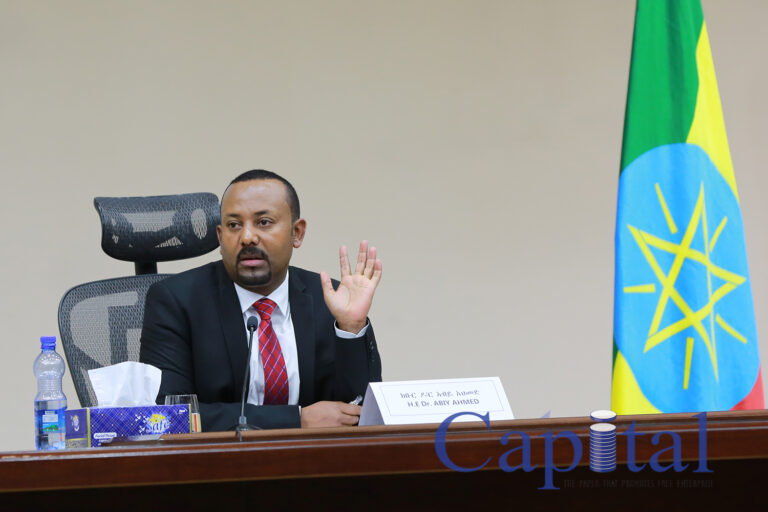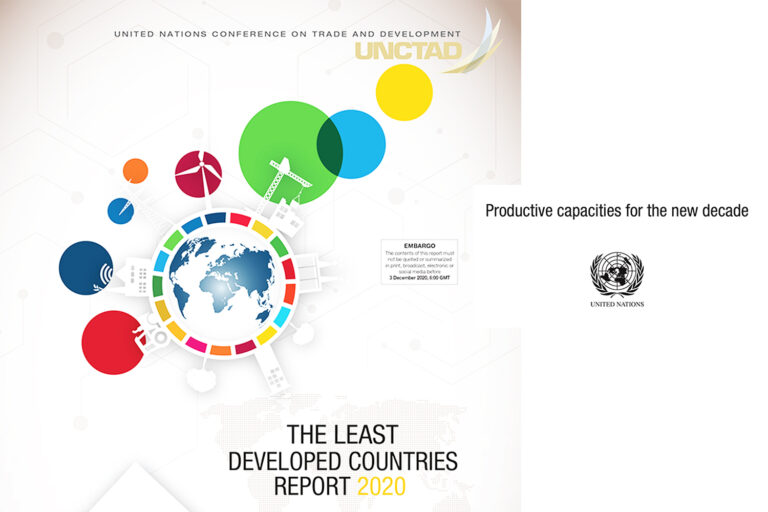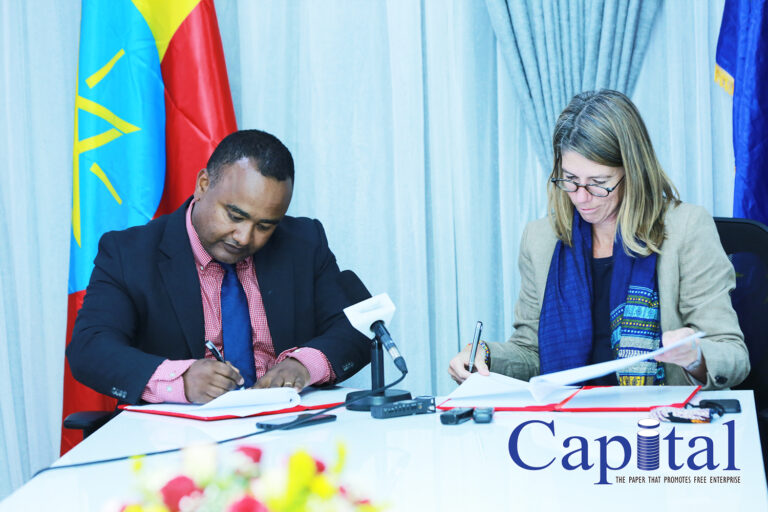After three weeks of military offense in Tigray region to enforce law and bring in the so called criminal group of Tigray Peoples Liberation Front /TPLF/ leaders on the evening of Saturday, November 28 government has said, “The third and final phase of the battle came to an end.”
On Monday, November 30, a day after announcing the end of military operations in the northern part of the country Prime Minister Abiy Ahmed told parliament, “The victory is Ethiopia’s, truth has won and the prayers and tears of Ethiopian mothers have-not gone in vain.” The Prime Minister also emphasized that people need to be humble and should not celebrate the win because the major battle is in front us, ‘poverty’, which must also be tackled.
Also to foreign countries the Prime minister emphasized through saying, “We don’t want to look like others. We want to look like ourselves. If you want to be friends with us, please understand us first. We have many years of experience, even more than most countries. We may be poor but we are not a country that will negotiate our sovereignty. Threatening Ethiopia for coins will not work.”
As Prime Minister Abiy said that national forces did not kill any civilians in Tigray, in what could be the latest accusation of mass murder on the part of TPLF fighters, Ethiopian National Defence Forces (ENDF) avoided civilian installations, including towns.
“Why would we strike Mekele? Mekele is ours. It’s Ethiopia’s. ENDF operate with utmost discipline and care for civilians,” the Prime Minister said.
The TPLF had already been accused of a massacre of civilians after Amnesty International and the Ethiopian Human Rights Commission separately said unarmed civilians were killed in the Tigray town of Mai Kadra.
“There is no way to explain the Mai Kadra massacre perpetrated by TPLF. It is the epitome of moral degeneration,” Abiy said.
He told the audience that the ENDF opted not to destroy all tanks owned by the TPLF because they had stationed them in civilian quarters, endangering life.
The fact that we didn’t sit down with the criminals for dialogue doesn’t mean we weren’t interested in dialogue. “We love to discuss, we hate wars. We begged, we are known for peace,” he said, Ethiopia has one government, a government that respects the law, and can be asked according to the law, even in the time of the war we were having dialogues but it was with the legal interim government lead by Mulu Nega,” he added.
The TPLF once ruled Ethiopia for three decades, mostly as part of a coalition known as the Ethiopian People’s Revolutionary Democratic Front (EPRDF). When Abiy came to power in 2018, he sought to dismantle their grasp on power.
In Parliament, he said the TPLF wanted to manipulate everything in their favour and went as far as pretending to be on his side.
“The impression that TPLF left when EPRDF decided to merge is a false narrative,” Abiy said referring to the merger of EPRDF parties into the Prosperity Party last December.
“TPLF itself endorsed the merger. TPLF itself had also voted for the decision to adopt the Algiers decision and forge peace with Eritrea. But they went public to say they didn’t,” Abiy explained.
‘Be humble’ Abiy advises the people who over celebrate
Cainiao partners with Ethiopian Airlines to launch cold chain air freight for vaccine transportation
Cainiao Smart Logistics Network, the logistics arms of Alibaba Group Holdings Limited, announced its partnership with Ethiopian Airlines to launch a special cold chain air freight for the transportation of temperature-controlled medicines from Shenzhen Airport, China’s first medical cross-border cold chain facility. Temperature-controlled medicines will be distributed twice a week from Shenzhen to Africa, and to the rest of the world via Dubai and Addis Ababa.
This is China’s first cross-border medical cold chain route to be operated regularly and is certified to transport temperature-controlled medicines including COVID-19 vaccines.
The end-to-end transportation process requires a highly effective cold chain management. During air freight, the entire cold chain cabin is equipped with a temperature control system that monitors the cabin’s temperature in real-time.
As the fourth airport in Mainland China that obtained International Air Transport Association (IATA)’s Centre of Excellence for Independent Validators (CEIV) certification for pharmaceutical logistics, Shenzhen Airport is also well-equipped to handle biotechnology products. The cargo terminal in Ethiopia is outfitted with compartmentalized cold storage facilities with temperature between -23°C to 25°C. It occupies an area of 54,000 square metres, with dedicated cool dollies and pharma team, as well as real-time temperature monitoring system to ensure a safe and seamless cold chain logistics for handling temperature sensitive healthcare products.
“Cainiao’s global logistics network spans over 200 countries and regions, providing end-to-end integrated logistics services, including digital customs clearance capabilities,” said James Zhao, General Manager of Cainiao International Supply Chain. “The launch of the cold chain air freight has further bolstered our global logistics capabilities, and allow us to offer a one-stop solution for the global distribution of medical products such as the Covid-19 vaccines.”
Tewolde GebreMariam, Ethiopian Group CEO said “Ethiopian Airlines will repeat its remarkable and globally recognized success in leading the fast delivery of PPEs few months ago with similar delivery speed, professional handling and maintaining the cold chain during the forthcoming global distribution of the Covid-19 vaccine. In anticipation of the Covid-19 vaccine release, we will be at the forefront to further discharge our responsibility in the distribution of the vaccine across the globe.”
Cainiao’s launch of the “Green Channel” Initiative this year to fight the pandemic has helped in the distribution of 250 million pieces of PPEs, including Covid-19 test kits, to medical suppliers in over 150 countries and regions. In collaboration with its partners, Cainiao has also helped to transport medical relief items for international organizations during the pandemic outbreak.
COVID-19 economic crisis to pull 32 million people back into absolute poverty: UNCTAD
Efforts to rebuild the economies of the world’s poorest nations post-pandemic will fall significantly short unless their productive capacities are drastically improved, according to UNCTAD’s Least Developed Countries Report 2020.
Least developed countries (LDCs) with the most developed productive capacities have best been able to combat the fallout from the pandemic, according to the report. Productive capacities are the productive resources, entrepreneurial capabilities and production linkages that together determine the capacity of a country to produce goods and services, and enable it to grow and develop.
“The pandemic has brutally reminded us of the urgent need to develop productive capacities in LDCs to enable them achieve structural transformation, reduce exposure to external shocks and build resilience,” UNCTAD Secretary-General Mukhisa Kituyi said.
He said the development of productive capacities in most LDCs has been too slow for them to overcome major development challenges and shocks such as COVID-19. UNCTAD’s Productive Capacities Index (PCI) shows that the majority of LDCs have low productive capacities: their average PCI level was 40% below that of other (non-LDC) developing countries between 2011 and 2018.
Worst economic performance in 30 years
The report says the COVID-19 pandemic has hit LDCs very hard because collectively they are the world’s most vulnerable economies. This is aggravated by their very weak levels of resilience. They have the least financial and institutional means to react to external shocks such as the ongoing pandemic.
An estimated 1.06 billion people live in the 47 LDCs. Despite their large demographic weight, LDCs account for less than 1.3% of global GDP. In 2019, the average GDP per capita in LDCs was only $1,088, compared with a world average of $11,371.
The report forecasts that the pandemic will push LDCs to their worst economic performance in 30 years in 2020, with falling income levels, widespread employment losses and widening fiscal deficits. The crisis will reverse years of painstaking progress by LDCs in social fields such as poverty reduction, nutrition and education, the report warns. The number of people living in absolute poverty in LDCs could rise by 32 million in 2020, pushing the poverty rate from 32.5% to 35.7% and limiting these countries’ chances of achieving the UN’s Sustainable Development Goals (SDGs). The people living in extreme poverty in LDCs account for more than 50% of the global population living below $1.90 per day and 34% of those living on less than $3.20 daily.
How to build productive capacities in LDCs
“Bold policies to strengthen productive capacities in LDCs should constitute a key pillar of any sustainable recovery from the pandemic and long-term development strategy,” said Paul Akiwumi, UNCTAD’s director for Africa and least developed countries. Such policies should go beyond cushioning people in LDCs from the impact of the pandemic. “They should spur an investment push to redress longstanding infrastructural gaps and support broader employment creation,” Akiwumi added.
The report says countries that have lowered their economic vulnerability levels improved either their trade or production indicators, both of which are outcomes of better productive capacities, and help to drive a process of structural transformation.
Structural transformation is the process through which a country’s productive resources such as natural resources, land, capital labour and know-how move from low-productivity to high-productivity economic activities.
Some Asian LDCs such as Bangladesh, Cambodia, Laos, Myanmar and Nepal have made greater strides, experienced industrial growth and expanded modern service sectors, leading to strong gains in labour productivity.
By contrast, structural transformation has been slower in African, island LDCs and Haiti, where agriculture and traditional service sectors generate most employment and output, and low productivity levels and growth continue to constrain living standards.
Digital revolution for productive capacities
The digital revolution has raised hopes of LDCs leapfrogging – adopting modern systems without going through intermediary steps – but firms in these countries are severely disadvantaged.
“Digital transformation requires technological capability, the acquisition of which takes time, is difficult and costly to acquire. It is accumulated through production experience during previous industrial revolutions, which have bypassed most LDCs” the report says.
In LDCs, the uptake of advanced technologies is still incipient and hindered by factors such as infrastructure gaps and skills shortages. Policymakers are faced with the task of transforming predictions on the positive impacts of frontier technologies for LDCs into problem-solving strategies to promote firm-level innovation. But LDCs can only leverage the digital revolution in the productive sphere if they put in place industrial policies that reinforce and develop the technological capabilities of producers in all sectors, the report says.
An example of active industrial policy is Uganda’s government-initiated Kayoola Bus initiative, which has established the domestic production of buses powered mainly by renewable energy to tackle the environmental and health problems of transport-related air pollution.
World should not leave LDCs behind
The report calls on the international community to support LDCs’ efforts with adequate financial resources, allow them enough policy space for them do design and implement their own policy choices, and adopt more effective international support measures, notably in technology transfer.
Enabling Digital Reform
The Ministry of Innovation and Technology (MoIT) and the European Union have signed €1.2 financing agreement for the implementation of one-stop shop project in Dire Dawa and Bahir Dar cities.
The agreement was signed on Thursday December 3, by Abyot Bayou, Digital Transformation Program Director General at MoIT and Sani Williams, European Commission’s Economy and Infrastructure Team Leader.
The project will be realized over a course of 12 months and helps to implement, guide and enable digital reforms under the ease of doing business program in Ethiopia, by further developing the national business portal and facilitating the implementation of ease of doing business reforms.
Through the EU’s support, MoIT will be able to involve the municipal administrations of Bahir Dar and Dire Dawa cities in the national business portal, while facilitating the implementation of ease of doing business reforms by allowing further digitalization and reforms’ ownership.










